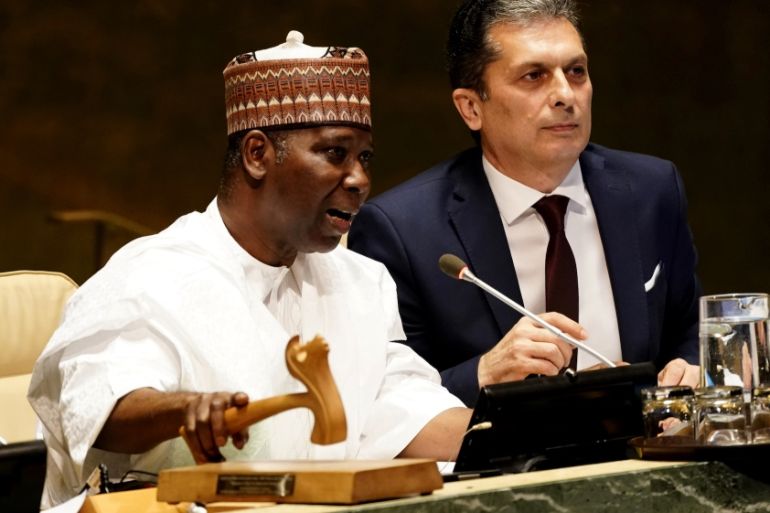United Nations of difference
The mission of the UN is not to unite nations in sameness, but to make them work together in difference.

There have been few occasions in our lifetimes that the world has been in more need of dialogue. From wars to civil unrest, today there is conflict on every continent. In my own – Africa – economic and environmental stress has fuelled a migration crisis to Europe.
In the face of these multiple dangers, it would be a failure of leadership to tack towards isolationism.
Keep reading
list of 2 itemsGuterres warns UN may not have money to pay staff next month
Some say that today’s challenges are part of a pattern – the cycles of history. There are undeniably cycles of human history spanning generations: the rise and fall of empires, population booms and busts, the spread and disappearance of religions and cultural beliefs, decades of unification followed by separation.
But history, of course, never fully repeats. There are always differences. For in today’s generation should there be a lack of willingness by world leaders to cooperate – and there have been many such times before – it comes, paradoxically, at the same time that the world’s citizens have never been more connected.
This is crucial. During my formative years, my country Nigeria – indeed much of Africa – was a land of coups and countercoups. Only 20 years ago, the seizure of a nation’s single state broadcast network and a proclamation was all it might take to remove an elected head of state or government. It was often over before a country’s citizens – let alone the wider world – learned the news.
Today we see the awesome power of citizens to defend their rights, voice their concerns and campaign for change and greater cooperation between peoples and governments through digital social media, combined with the increasing universality of telecommunications. Individuals and families living in the most remote parts of Asia can see – in real-time – civil unrest in Latin America or Africa or North America on their mobile phones.
This has changed the world. And while harrowing news can make us view our planet as being more unstable and fragile than it has ever been, because of the interconnectivity of humankind today, I believe we live in a time of hope. Citizens now have the power to pressure and persuade those who govern us more completely than ever before. Now, people across all nations speak out, more united than ever before.
It would have been absurd if this new reality was to have escaped leaders of the world’s 193 nations who gathered last month for the 74th United Nations General Assembly in New York City. As they spoke about the urgent global challenges as they saw them, the commonalities were evident: climate change, inclusion and partnerships. Yet, it is also clear that preaching a little less and listening, and taking action a little more, is also required. There seemed to be a commitment in that direction.
So, too, for the United Nations Security Council. Founded after the end of the Second World War under the UN’s Charter in 1948, the council’s purpose is to guarantee and maintain peace in the world. The challenge lately has been to have a more coherent voice and approach on some of the burning issues globally. This is the main guarantor of its success and continued relevance to all.
It is incumbent on every one of the 193 UN member states to uphold the values of the charter that asserts there is to be universal respect for, and observance of, human rights and fundamental freedoms for all without distinction as to race, sex, language or religion .
Yet today it would appear it is easy to forget that this does not mean everyone has to be the same, believe the same, live or love the same. The predilection to demand and pressure others to bend to precisely the same school of thought and cultural norms is not to respect the UN Charter. It is, in fact, to damage it. We must respect, fundamentally, our differences. Otherwise, there are no fundamental freedoms at all.
This is the challenge for world leaders today: that nations are not united in making uncooperative demands of other nations, but united in listening to and acting in the interest of the citizens of the world – in all their difference.
The views expressed in this article are the author’s own and do not necessarily reflect Al Jazeera’s editorial stance.
